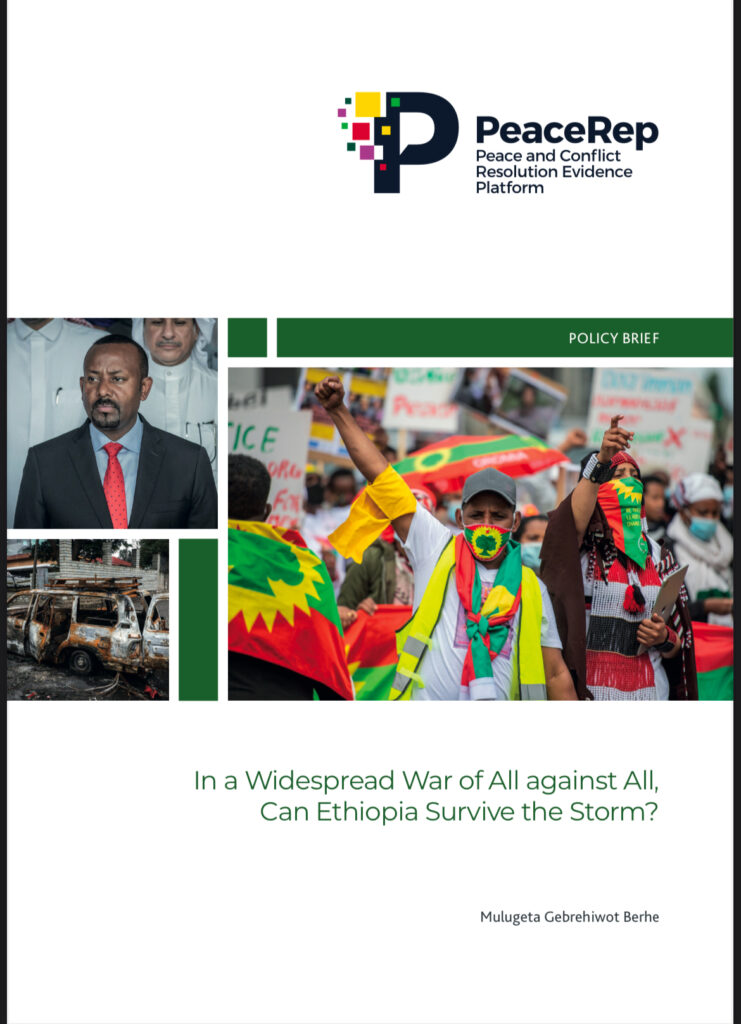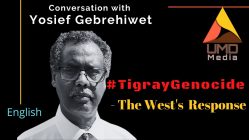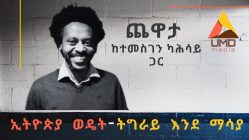In a scathing policy brief, Mulugeta Gebrehiwot Berhe, a researcher with the World Peace Foundation, Tufts University, has outlined Ethiopia’s descent into chaos under Prime Minister Abiy Ahmed, warning that the country faces an existential threat as a “nation of nations.” The 32-page report entitled In a Widespread War of All Against All, Can Ethiopia Survive the Storm?, supported by the Peace and Conflict Resolution Evidence Platform, paints a grim picture of a nation caught in a widespread “war of all against all,” leaving the federal government struggling to maintain control beyond Addis Ababa and its immediate surroundings. Ethiopia’s governance is faltering as lawlessness and political decay proliferate across its regions.

Multiple Regional Conflicts
The situation in Ethiopia has spiraled into chaos with conflicts erupting across several regions, including Oromia, Amhara, Tigray, and others. These wars, defined by shifting alliances and poorly organized actors, are emblematic of the political collapse gripping the country. The report describes a scenario where, in many regions, it is often unclear who is fighting whom, underscoring the level of disarray. This breakdown has rendered the government powerless in large swaths of the country, exacerbating a humanitarian crisis and plunging Ethiopia into a dangerous cycle of violence and ungovernability.
Abiy’s Leadership in Question
Abiy Ahmed, who initially ascended to power in 2018 with promises of reform, has faced growing criticism for exacerbating Ethiopia’s divisions. The early hope sparked by his administration was quickly dashed as he employed authoritarian tactics, suppressed dissent, and arrested journalists and opposition leaders. Instead of healing the fractures within the Ethiopian political landscape, his administration deepened them, especially by sidelining regions like Tigray and cracking down on groups such as the Oromo Liberation Army. Millions have been displaced, and trust in the federal government has eroded. The report portrays Abiy as a leader whose populist rhetoric and centralized style of governance have amplified, rather than mitigated, Ethiopia’s vulnerabilities.
Economic Collapse
Ethiopia’s economic outlook has become equally dire, with the Tigray war alone costing the country $28 billion in damages. Unemployment and inflation have skyrocketed, driving millions into poverty. The report notes that the Ethiopian currency’s dramatic devaluation under a new economic reform agenda has led to soaring costs of living. Multidimensional poverty now affects 86 million Ethiopians, making the country one of the poorest in the world. Basic services, including education and healthcare, have been severely disrupted. More than 10,000 schools are either damaged or closed, and over nine million children are out of school. The devastation is compounded by the displacement of millions and the destruction of infrastructure critical to recovery.
Humanitarian Crisis and Fragmented Resistance
The humanitarian toll is staggering, with millions of internally displaced persons and countless others struggling under the weight of chronic insecurity. The brief highlights the fragmentation among Ethiopia’s regional elites, particularly in Tigray, Amhara, and Oromia, where internal divisions have stalled meaningful collaboration. The Tigray region, while temporarily stabilized by the Pretoria Agreement, remains riven by factionalism within the Tigray People’s Liberation Front (TPLF). In Amhara and Oromia, the resistance is similarly fragmented, as competing visions and interests prevent the formulation of a unified front against the government.
A Path Forward
Despite the dire situation, the policy brief identifies a possible way forward. It calls for the formation of an all-inclusive transitional government that could lead the country into a period of national reconciliation. Sub-national dialogues, particularly in regions like Tigray, are emphasized as critical steps in building internal consensus and preparing for broader national dialogue. For the international community, the report suggests prioritizing peace negotiations and informal dialogues over purely economic or political reforms, while also pressuring the Ethiopian government to end the ongoing conflicts. For Ethiopians, the report stresses the need to set aside ethnic and political divisions, encouraging a shared vision for the nation’s future.
The policy brief serves as both a warning and a call to action. Without immediate and coordinated efforts at the national and international levels, Ethiopia risks descending into a full-scale collapse, with devastating consequences for its people and the region at large.



